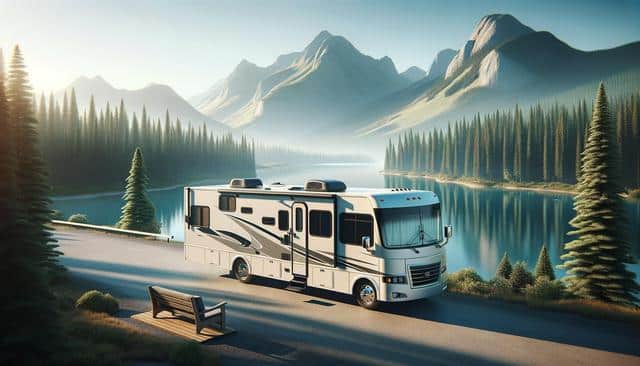
A Practical Guide to Long-Term RV Rentals
Understanding Long-Term RV Rentals
Long-term RV rentals offer a unique opportunity for travelers, remote workers, or those transitioning between homes to experience life on the road with the comforts of a mobile home. Whether you’re planning a cross-country adventure or seeking a temporary housing solution, long-term rentals provide flexibility and value. Typically, these rentals are defined as RV stays lasting a month or more, with some agreements extending to several months or even over a year.
One of the primary advantages of long-term rentals is cost savings compared to nightly or weekly rates. Rental companies often provide discounted monthly pricing, and utilities such as water, electricity, and sewage are frequently included or available at established RV parks. It’s important to understand the different rental agreements available, which may include:
- Monthly lease agreements with optional extensions
- All-inclusive packages with maintenance and insurance
- Flexible terms with mileage caps or unlimited mileage
When evaluating options, it’s essential to clarify what’s included in the rental, such as kitchenware, linens, and camping accessories. This will help you prepare adequately and avoid unexpected costs.
Choosing the Right Type of RV
The type of RV you choose for a long-term rental will significantly impact your overall experience. RVs come in various sizes and configurations, each suited to different needs and travel styles. Common types include:
- Class A motorhomes: Spacious and equipped with full amenities, ideal for extended stays
- Class C motorhomes: A more compact option that balances comfort and drivability
- Travel trailers: Towable units that allow flexibility if you already own a vehicle with towing capacity
- Fifth wheels: Larger towable RVs with multiple slide-outs and residential-style features
Consider your travel companions, desired living space, and driving comfort when selecting an RV. Solo travelers or couples may find smaller motorhomes sufficient, while families or those seeking more amenities might prefer larger models. Storage space, sleeping arrangements, and bathroom facilities should also play a role in your decision-making process.
Planning Your Route and Stay Duration
Before signing a long-term rental agreement, it’s wise to map out your travel plans. Knowing where you intend to go and how long you’ll stay in each location can influence your RV choice and rental terms. Some RV parks offer discounted rates for long-term stays, which can result in additional savings and convenience.
When planning your route, take into account:
- Seasonal weather conditions and how they may affect travel or comfort
- Availability of long-term RV parks or campgrounds
- Access to essential services like groceries, healthcare, and fuel
- Internet connectivity for remote work or communication
Staying in one place for an extended period can also reduce travel stress and fuel costs, making it easier to immerse yourself in the local environment. Many long-term renters choose to stay in one region for several weeks or months before moving on to the next destination.
Budgeting and Managing Costs
Long-term RV living can be an economical alternative to traditional housing or vacationing, but it requires careful budgeting. Rental fees are just one part of the equation. You’ll also need to account for fuel, campground fees, insurance, maintenance, and daily living expenses.
To manage costs effectively, consider these tips:
- Set a monthly budget that includes fixed and variable expenses
- Compare campground prices and look for monthly or seasonal discounts
- Use fuel-saving apps or loyalty programs to reduce travel costs
- Opt for RVs with efficient energy systems to lower utility bills
Additionally, some long-term RVers offset costs by working remotely, volunteering at campgrounds in exchange for free stays, or engaging in seasonal jobs. Being financially prepared helps ensure a more enjoyable and stress-free experience on the road.
Tips for a Comfortable Long-Term RV Experience
Adapting to long-term RV living requires a few adjustments, especially if you’re new to the lifestyle. Comfort, organization, and routine are key to making the most of your time on the road. Start by personalizing your living space with items that bring a sense of home, such as favorite bedding, kitchen tools, or decorations.
Other helpful strategies include:
- Creating a daily routine for meals, work, and activities
- Investing in storage solutions to keep your space tidy
- Staying connected with friends and family through digital tools
- Regularly maintaining your RV to avoid mechanical issues
It’s also beneficial to stay informed about RV regulations in different states or regions, including parking restrictions and road requirements. Joining RV communities or forums can provide valuable support and insights from other long-term renters. With the right mindset and preparation, long-term RV rental can be a rewarding and liberating experience.
Conclusion: Embrace the Freedom of the Open Road
Long-term RV rentals offer a unique blend of mobility, comfort, and flexibility for those seeking a different way of living or traveling. Whether you’re exploring new landscapes or looking for a temporary home, these rentals provide an adaptable solution. By understanding your needs, choosing the right RV, and planning carefully, you can enjoy a smooth and fulfilling journey. Embrace the opportunity to travel at your own pace and discover the possibilities that long-term RV living has to offer.


